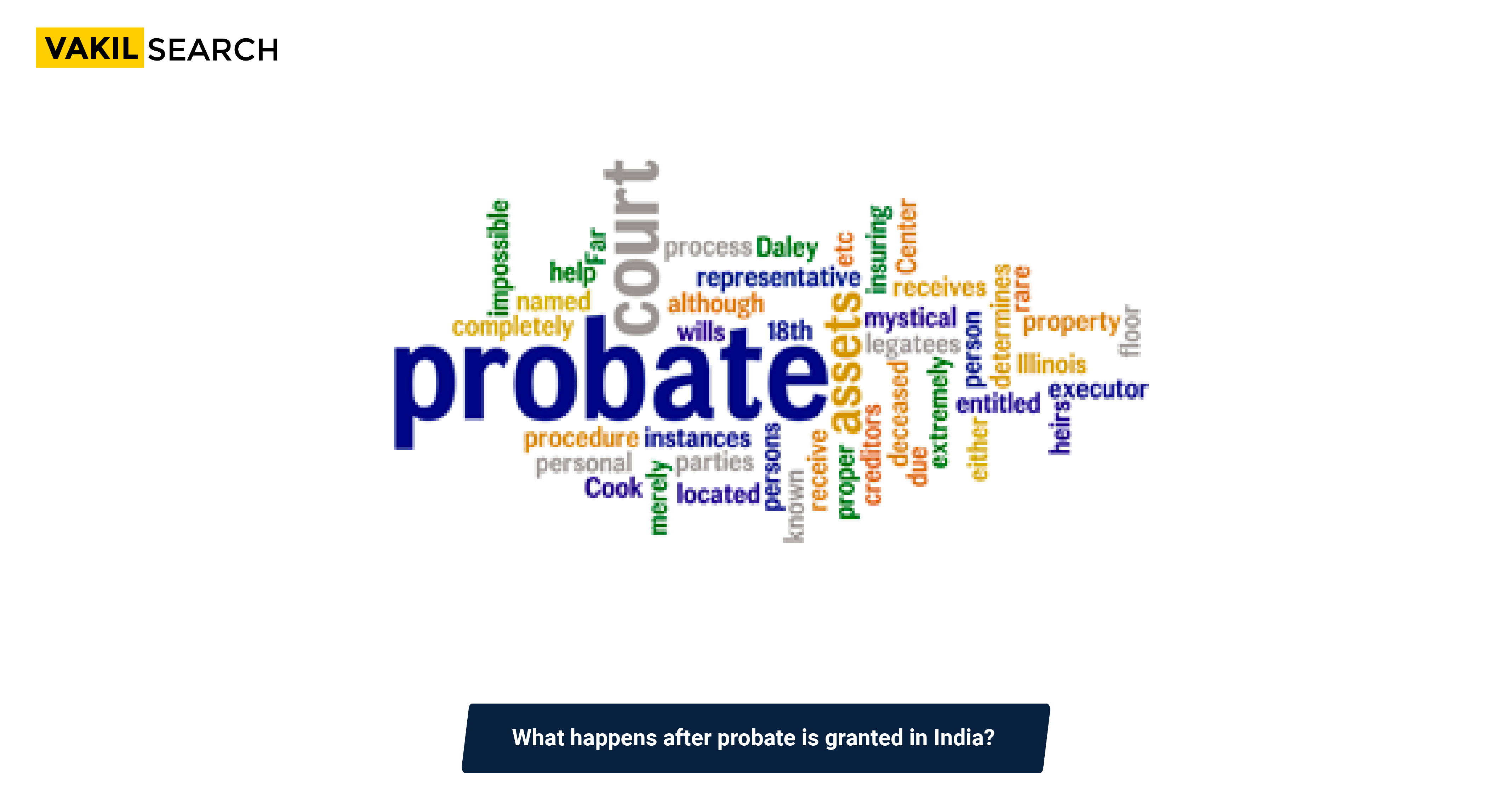Uncover the steps that follow probate grants in India. Explore asset distribution, creditor settlements, and legal obligations.
Probate is a crucial legal step in the process of settling a deceased person’s estate in India. It involves the court’s validation of the deceased’s will and the appointment of an executor to administer the estate.
Once probate is granted, it marks the beginning of the estate administration process.
In this comprehensive guide, we’ll explore what happens after probate is granted in India, including asset distribution, creditor claims, legal responsibilities, and how Vakilsearch’s services can assist you in navigating this intricate process.
Post-Probate Process in India: Everything You Need to Know
Asset Identification and Valuation
After probate is granted, the executor’s primary responsibility is to identify and value all the assets that belong to the deceased’s estate. This includes properties, investments, bank accounts, personal belongings, and any other assets mentioned in the will. A detailed inventory is essential to ensure that all assets are accounted for and distributed correctly.
Settling of Outstanding Debts and Liabilities
One of the critical aspects of estate administration is settling the deceased’s outstanding debts and liabilities. The executor must notify creditors of the probate grant and provide them with an opportunity to make claims against the estate.
Creditors are required to submit their claims within a specified timeframe, typically a few months from the date of probate grant. The executor reviews these claims, and if they are deemed valid, they are paid from the estate’s assets.
Asset Distribution
Once all valid creditor claims have been settled, the remaining assets are distributed among the beneficiaries as per the terms of the will. The executor is responsible for ensuring that this distribution process adheres to the deceased’s wishes as outlined in the will.
If there is no will, the distribution follows the laws of intestate succession, which dictate how assets are distributed when there is no valid will.
Fulfilment of Legal Responsibilities and Reporting
During the estate administration process, the executor has several legal responsibilities, including:
– Keeping accurate records of all financial transactions related to the estate.
– Filing necessary tax returns, including income tax and estate tax returns, if applicable.
– Ensuring that the distribution of assets is carried out according to legal requirements.
Additionally, the executor may need to obtain clearances and approvals from various government authorities, such as the Income Tax Department and the Registrar of Properties, depending on the nature of the assets involved.
Final Accounting and Closure
After the distribution of assets and settlement of debts, the executor prepares a final account of the estate’s financial transactions. This account includes details of all income received, expenses incurred, and asset distribution.
The final account is presented to the beneficiaries, and once they approve it, the executor can close the estate.
Conclusion
After probate is granted in India, the executor plays a pivotal role in administering the deceased’s estate, including identifying and valuing assets, settling outstanding debts, distributing assets to beneficiaries, and fulfilling legal responsibilities.
The estate administration process can be complex and time-consuming, making it essential to seek legal guidance and support. Vakilsearch’s experienced professionals can assist you at every step of the estate administration process, ensuring that you fulfil your legal obligations and navigate the complexities of asset distribution.
By enlisting expert assistance, you can streamline the post-probate process and provide peace of mind to both executors and beneficiaries. To know more, reach out to the experts at Vakilsearch right away!

